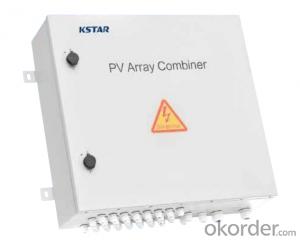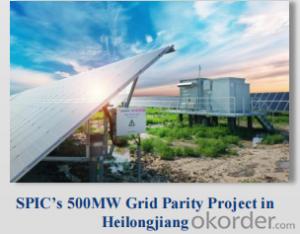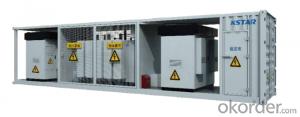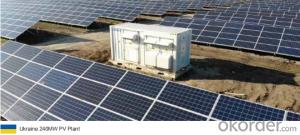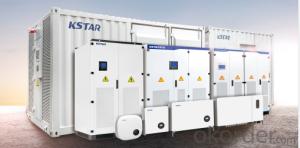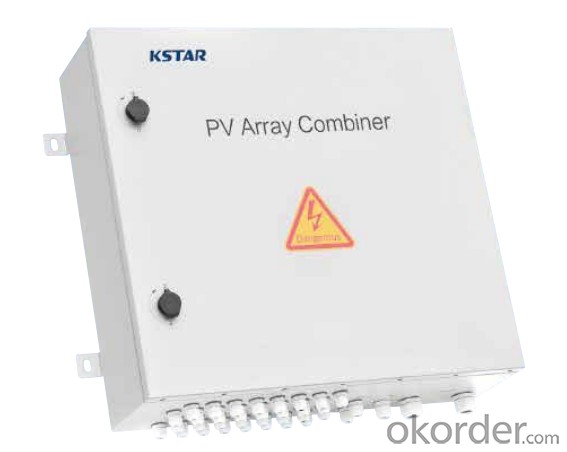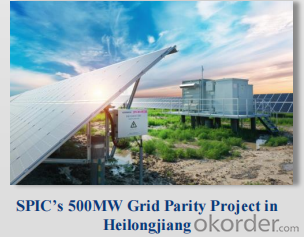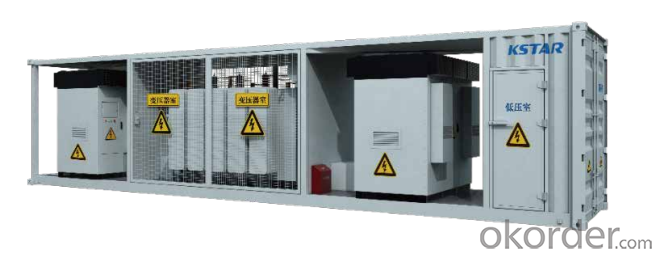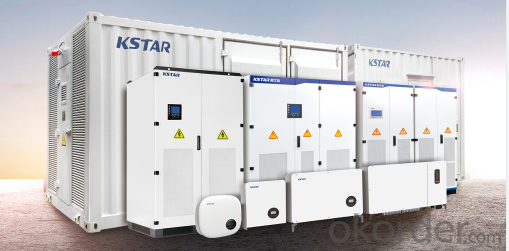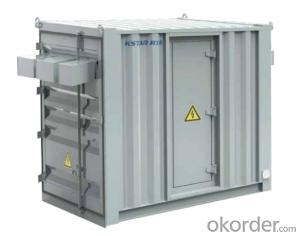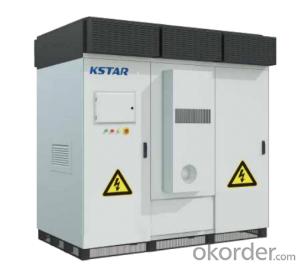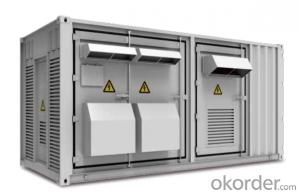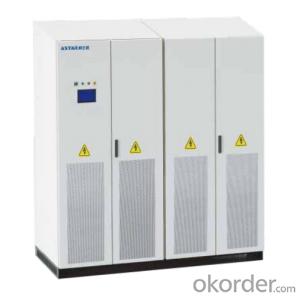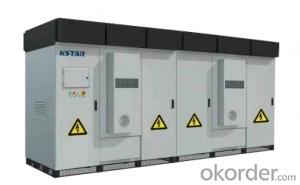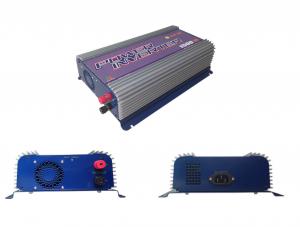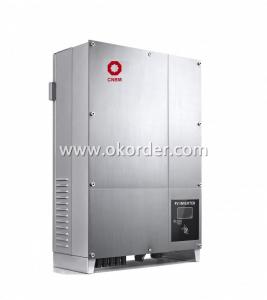18kW Solar Inverter Compatible GSC Series PV Array Combiner Box DC1000V / DC1500V
- Loading Port:
- China main port
- Payment Terms:
- TT OR LC
- Min Order Qty:
- 50 pc
- Supply Capability:
- 15000 pc/month
OKorder Service Pledge
OKorder Financial Service
You Might Also Like
Specification
Product Description:
★Positive & negative DC Fuse protection Alarms for PV array and blown fuse
★IP65 protection Anti-feedback diode optiona
★Real-time monitoring to the status of Fuse,Breaker and SPD
★RS485 and Modbus-RTU protocol String current and voltage monitoring
Technical Specifications:
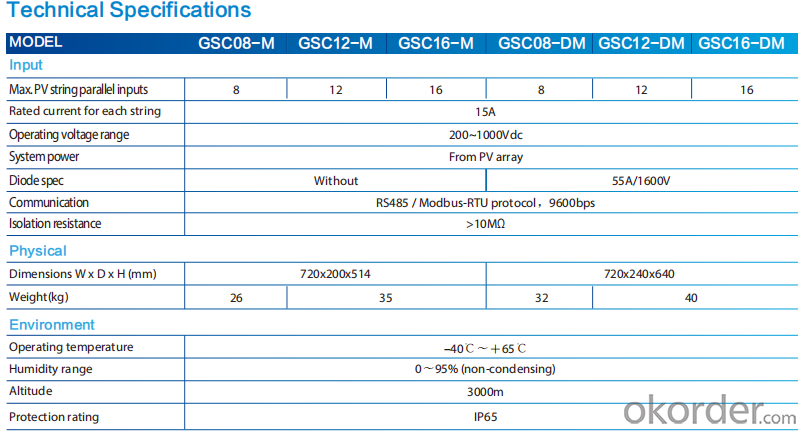
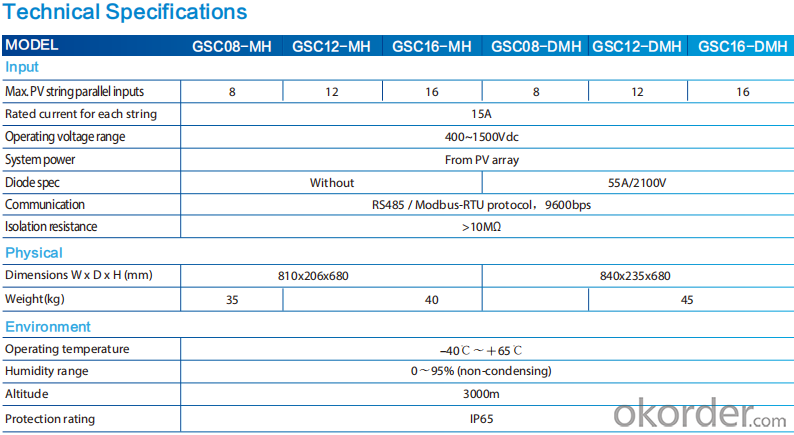
FAQ:
Q:How the output voltage of the PV inverter and the grid-connected voltage are determined
Inverter is the DC power (battery, battery) into alternating current (usually 220V, 50Hz sine wave). It consists of inverter bridge, control logic and filter circuit. Widely used in air conditioning, home theater, electric wheel, power tools, sewing machines, DVD, VCD, computer, TV, washing machine, range hood, refrigerator, video recorders, massage, fan, lighting and so on. In foreign countries
Q:Installation and maintenance of photovoltaic grid - connected inverter
only when the local power sector permission by the professional and technical personnel to complete all the electrical connection before the inverter can be connected.
Q:What is the difference between a PV grid-connected inverter and an off-grid inverter?
Off-grid inverter is equivalent to their own to establish an independent small power grid, mainly to control their own voltage, is a voltage source.
Q:After the PV inverter, how to achieve the same period before the network?
Solar panel simulator: with MPPT function, simulated morning, noon, afternoon, evening, rainy weather, solar panels produced under different conditions in different voltages.
Q:Is the PV inverter a current source or a voltage source?
According to the waveform modulation method can be divided into square wave inverter, stepped wave inverter, sine wave inverter and modular three-phase inverter.
Q:Photovoltaic grid-connected inverter without DC emc how will happen
Solar photovoltaic power generation technology is the use of solar cells, the photovoltaic effect of semiconductor materials, solar radiation can be directly converted into a new type of power generation system, solar energy is a radiant energy, solar power means --- to direct conversion of sunlight Into electricity,
Q:What is the difference between low voltage grid connection and medium voltage grid connection?
For photovoltaic power plants when the power system accidents or disturbances caused by photovoltaic power plant grid voltage drop, in a certain voltage drop range and time interval, the photovoltaic power plant can ensure that non-off-line continuous operation.
Q:Is the grid side of the grid and the inverter?
The grid load side of the grid is the grid. The inverter is an important part of the PV grid-connected system and can not be regarded as an external load. Photovoltaic power generation system is included in both grid and off-grid.
Q:PV grid-connected inverter and independent inverter in the control of what is the difference
The independent inverter in the output voltage phase amplitude of the frequency control is initially set good. Independent inverter, you should refer to off-grid inverter, do not need to consider the grid situation.
Product Images:
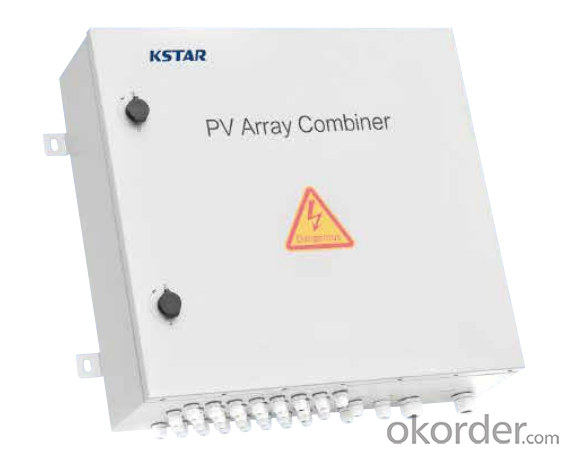
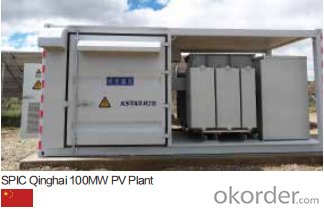
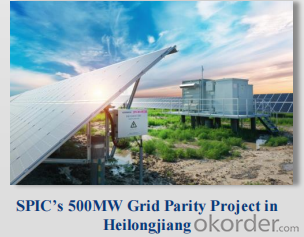
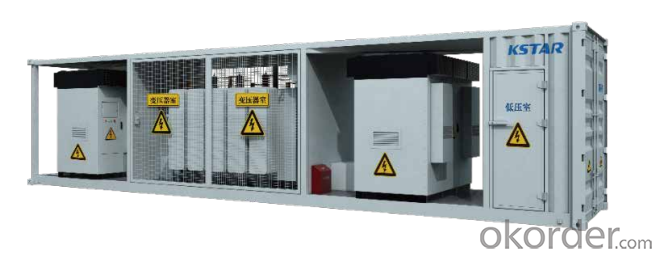
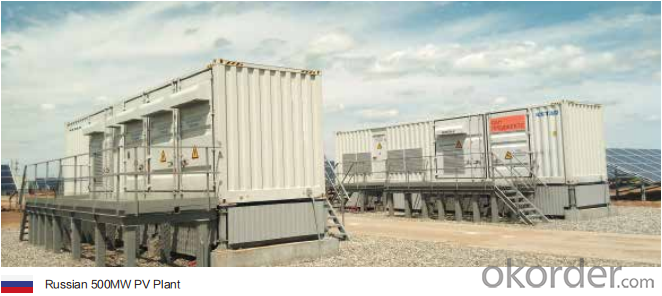
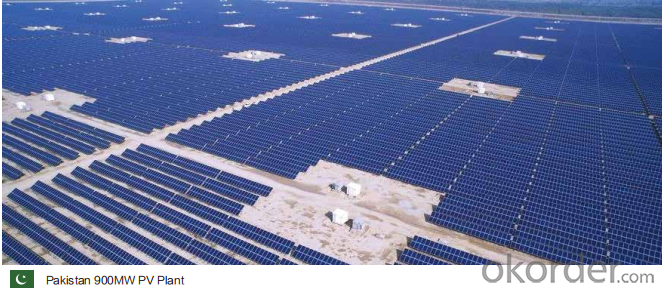
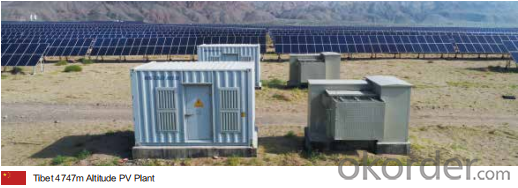
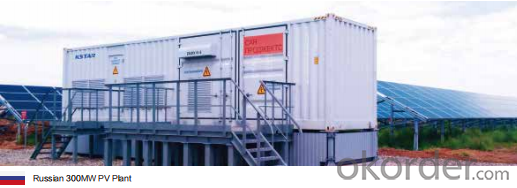
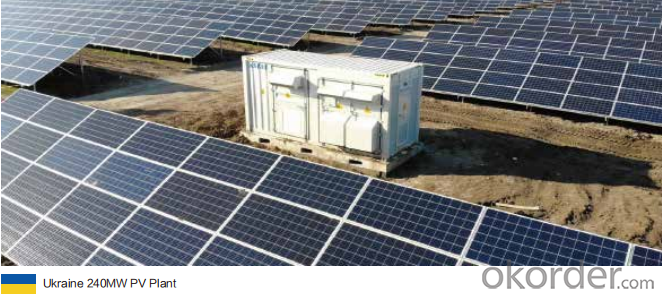
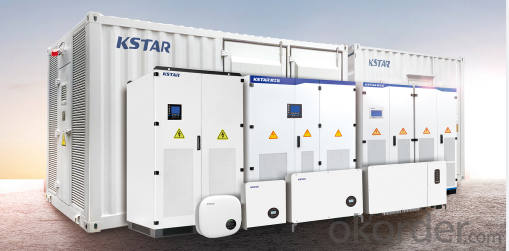
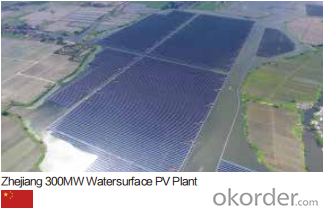
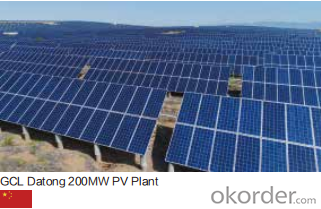
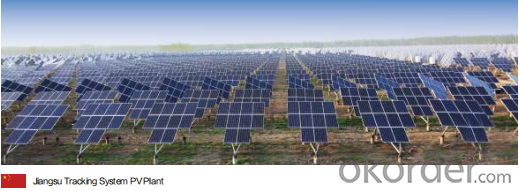
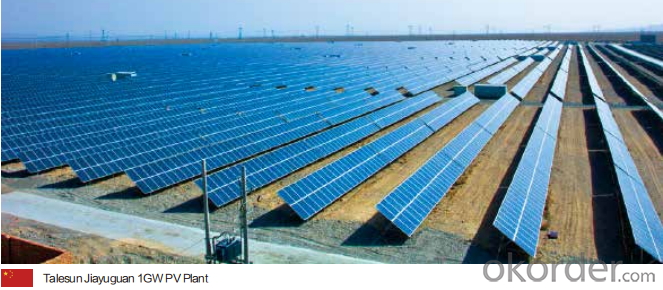
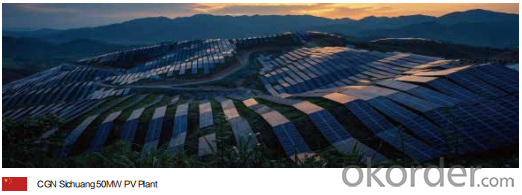
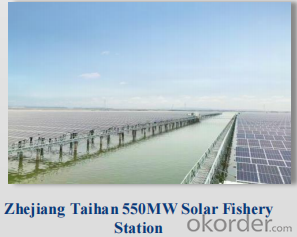

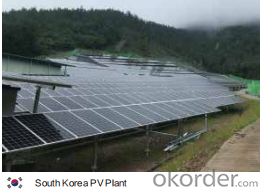
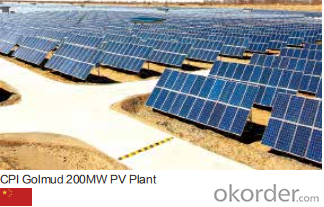
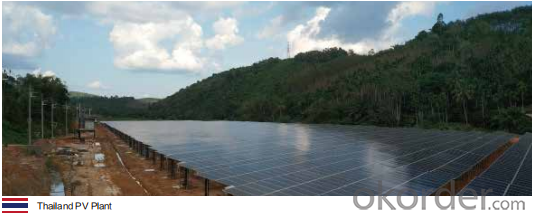
Production Process Photos:
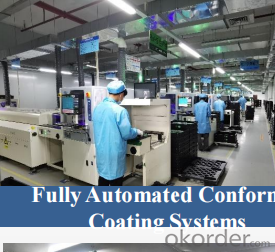
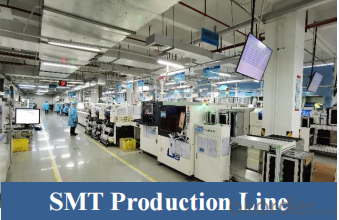
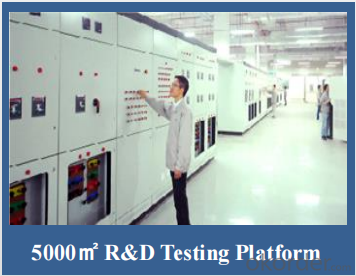
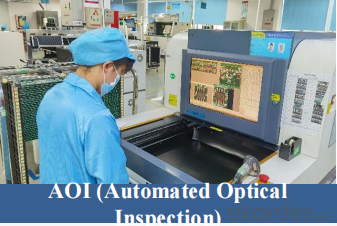
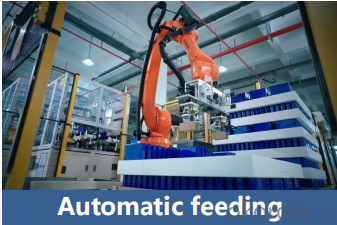
- Q: Can a solar inverter be used in areas with high humidity and salt air exposure?
- Yes, a solar inverter can be used in areas with high humidity and salt air exposure. However, it is important to choose a solar inverter that is specifically designed for such conditions, as these factors can potentially impact the performance and lifespan of the inverter. It is advisable to consult with a professional to ensure the selection of a suitable solar inverter for areas with high humidity and salt air exposure.
- Q: What are the potential risks of overloading a solar inverter?
- Overloading a solar inverter can lead to several potential risks. Firstly, it can cause the inverter to overheat, which can result in damage to the internal components and reduce its lifespan. Secondly, overloading can cause the inverter to shut down or trip, interrupting the solar power generation and potentially causing a power outage. Additionally, overloading the inverter may also compromise the safety of the electrical system, increasing the risk of electrical fires or other hazards. Therefore, it is important to ensure that the solar inverter is properly sized and not overloaded to avoid these potential risks.
- Q: Can a solar inverter be used with different grid voltages?
- No, a solar inverter cannot be used with different grid voltages. Solar inverters are designed to convert the DC power generated by solar panels into AC power that matches the specific voltage and frequency of the grid. Using a solar inverter with different grid voltages can cause damage to the inverter and can also be a safety hazard.
- Q: What are the common troubleshooting steps for a malfunctioning solar inverter?
- The common troubleshooting steps for a malfunctioning solar inverter may include checking the power supply, inspecting the wiring connections, resetting the inverter, performing a firmware update, checking for error codes or error messages, and consulting the manufacturer's manual or contacting technical support for further assistance.
- Q: What are the key safety features to look for in a solar inverter?
- Some key safety features to look for in a solar inverter include: 1. Overvoltage and overcurrent protection: The inverter should have mechanisms in place to prevent excessive voltage or current levels, ensuring the safety of the system and connected devices. 2. Ground fault protection: This feature detects and protects against faults in the grounding system, reducing the risk of electric shock or damage to the inverter. 3. Temperature monitoring and control: The inverter should have built-in temperature sensors to monitor and regulate its internal temperature. This helps prevent overheating and potential fire hazards. 4. Arc fault detection: Arc faults can occur in electrical systems and pose significant safety risks. An inverter with arc fault detection can identify and mitigate these faults, minimizing the chance of electrical fires. 5. Rapid shutdown capability: In the case of an emergency or maintenance, the inverter should have the ability to rapidly shut down the solar system. This feature helps ensure the safety of installers, firefighters, or anyone working on the system. 6. Compliance with safety standards: Look for inverters that meet relevant safety standards, such as UL 1741, IEC 62109, or other local regulations. These standards ensure that the inverter has undergone rigorous testing and meets specific safety requirements. Overall, a solar inverter with these key safety features can help enhance the safety and reliability of a solar power system.
- Q: Can a solar inverter be used with a solar water heating system?
- No, a solar inverter cannot be directly used with a solar water heating system. A solar inverter is specifically designed to convert the direct current (DC) electricity generated by solar panels into alternating current (AC) that can be used to power household appliances or fed into the grid. On the other hand, a solar water heating system utilizes the sun's energy to heat water directly, without the need for an electrical conversion process. Therefore, they are two distinct technologies with different purposes and cannot be directly combined.
- Q: What is the function of a solar inverter in a solar power system?
- The function of a solar inverter in a solar power system is to convert the direct current (DC) electricity generated by the solar panels into alternating current (AC) electricity, which is the type of electricity that is used in homes and businesses. This conversion allows the solar power system to feed electricity into the grid or power household appliances directly.
- Q: What is a solar inverter?
- A solar inverter is a device that converts the direct current (DC) electricity generated by solar panels into alternating current (AC) electricity that can be used to power household appliances and be fed back into the grid.
- Q: How does a solar inverter handle voltage rise in case of low load conditions?
- A solar inverter handles voltage rise in case of low load conditions by reducing the power output from the solar panels. It does this by adjusting the voltage and frequency of the electricity generated, ensuring that the voltage remains within the acceptable range. This prevents any damage to the inverter or connected devices and ensures the efficient operation of the solar system.
- Q: Can a solar inverter be used with different types of energy management systems?
- Yes, a solar inverter can be used with different types of energy management systems. Solar inverters are designed to convert the direct current (DC) produced by solar panels into alternating current (AC) that can be used in various electrical systems. They can be integrated with different energy management systems, such as battery storage systems, smart grids, or even hybrid systems that combine solar power with other renewable energy sources. This flexibility allows for efficient and optimized utilization of solar energy in different setups and applications.
Send your message to us
18kW Solar Inverter Compatible GSC Series PV Array Combiner Box DC1000V / DC1500V
- Loading Port:
- China main port
- Payment Terms:
- TT OR LC
- Min Order Qty:
- 50 pc
- Supply Capability:
- 15000 pc/month
OKorder Service Pledge
OKorder Financial Service
Similar products
Hot products
Hot Searches
Related keywords
